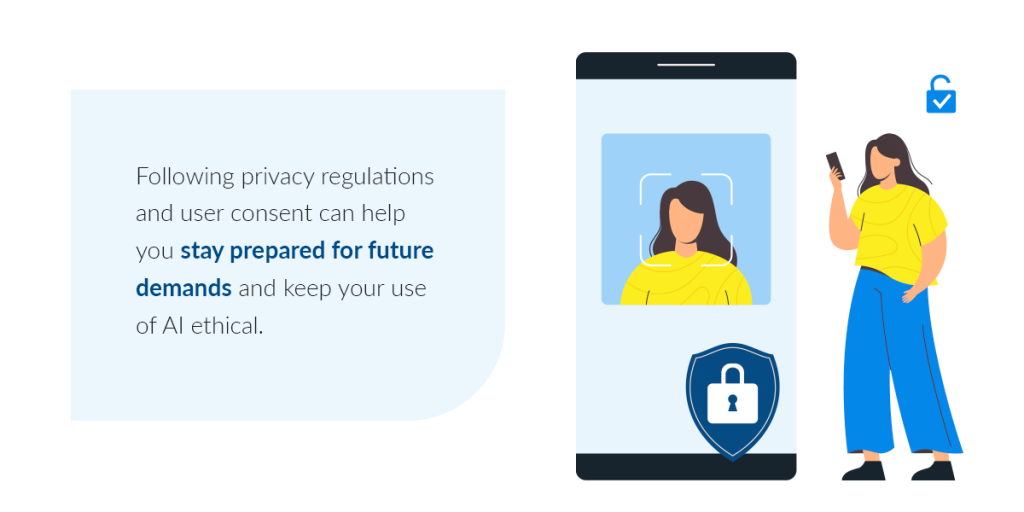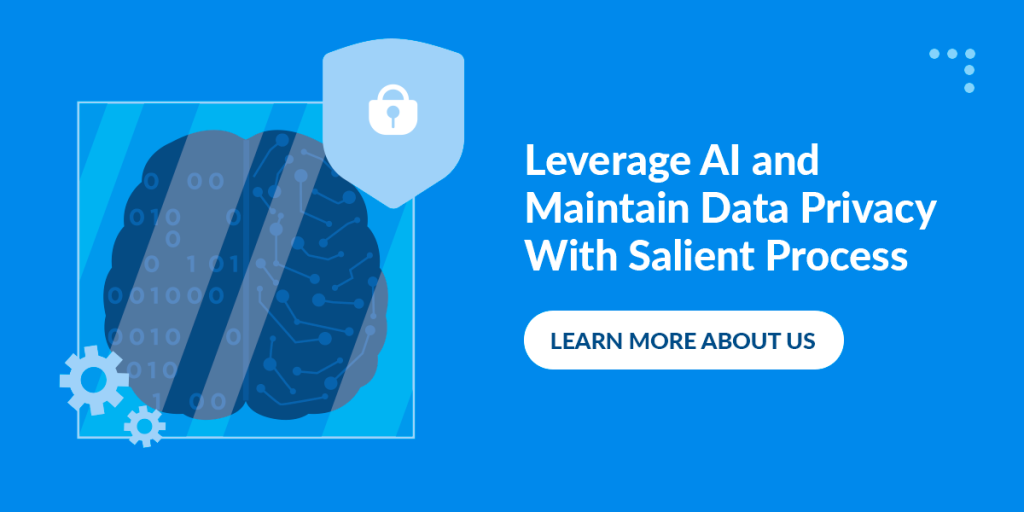
Artificial intelligence (AI) and AI-powered tools have flooded the business market, from handy analytics programs to capable chatbots. While these resources can positively transform your business processes, they also come with unique security risks. If you already use or plan to use AI in any capacity, you must understand these considerations and mitigate them through appropriate data security practices.
Casual users can easily overlook the vast amounts of data required to train AI models like ChatGPT and Bard. Every decision an AI makes is based on this information, making data integrity critical to the model’s behavior. Plus, this data is often sensitive, making it a potential target for hackers and accidental leaks. Robust data security in AI helps ensure models perform as intended and safeguards the data needed to do so.
As data privacy concerns have become more widespread, so have consumers’ awareness of how companies use their data. One Forbes Advisor survey found that 76% of consumers are concerned about misinformation from AI, and most consumers are concerned about businesses using AI. Prioritizing data privacy is crucial for using AI ethically and meeting various regulatory requirements.
Addressing privacy issues, decision-making behavior, and data security in AI calls for a multipronged approach.
AI privacy concerns and security issues range widely and can significantly impact trust, AI efficacy, legal standing, and your bottom line.
Hacking concerns in AI are similar to those present in other types of data handling. As an AI model collects data for training and carrying out tasks — such as customer information or business documents — you must protect that information from being accessed through malicious attacks. A breach in your AI system could expose sensitive information.
Good data security helps defend against deliberate attacks with methods like intrusion detection, secure encryption, and robust access controls. Your needs may vary depending on the sensitivity of the data.
Data privacy laws and regulations vary widely by industry and region. The General Data Protection Regulation in the European Union is a sweeping example with stringent requirements. In the United States, you’ll find similar legislation in many states, with laws being proposed and passed each year. Some industries also have their own requirements or suggestions within regulations, like the Health Insurance Portability and Accountability Act in health care and the Sarbanes-Oxley Act in finance.
These laws and regulations include requirements such as:
Even without applicable regulations, following these rules can help you stay prepared for future demands and keep your use of AI ethical.

Model poisoning occurs when a malicious entity manipulates an AI’s learning to plant misleading information. Computer scientists researching model poisoning provide the example of uploading images that aren’t safe for work, labeling them as safe, and adding a small red square in the top right corner of each one. The model would equate this square with safe images, so users could upload unsafe images with that red square and get past the AI’s filter.
The model poisoning strategy is less overt but worth watching for, especially in areas like fraud, debugging, and decision-making. Malicious actors could also affect the behavior of an AI model by tampering with data already stored.
Disgruntled employees are always a concern, and even the most well-intentioned worker can make mistakes. An AI data privacy plan must limit these risks by controlling employee access and capabilities.
Although AI privacy concerns are extensive, their solutions often overlap. A comprehensive solution with different tools can help you address these challenges and use AI securely and ethically.
Some technologies and policies to consider when achieving AI data privacy include:
These are just some potential technologies for achieving AI data privacy, but the right one for your system depends on factors such as your business architecture, industry, AI models used, and operating region.
Privacy and artificial intelligence go hand in hand. While achieving privacy and security might seem daunting, a skilled partner can help you implement the right technology and policies to suit your system.
At Salient Process, we keep your goals front and center during implementation with our North Star Methodology. Our experience spans diverse industries and organizations, and we can help implement AI even in highly regulated fields like we did for FCT, an insurance provider in Canada. We offer full-service digital support powered by industry-leading software from IBM. The experts at Salient Process bring it all together to support your needs for data security in AI.
Learn more about our capabilities, or reach out today to develop a plan for secure, compliant, and effective AI.
